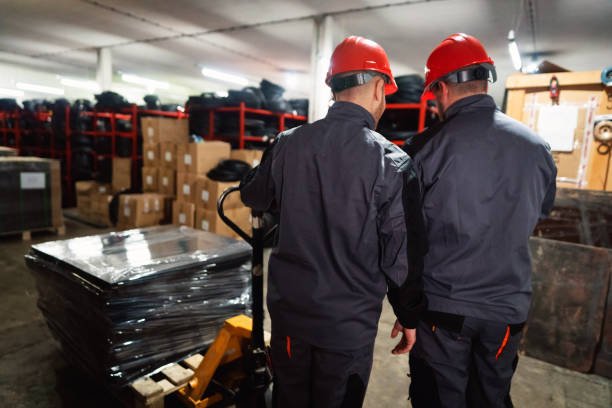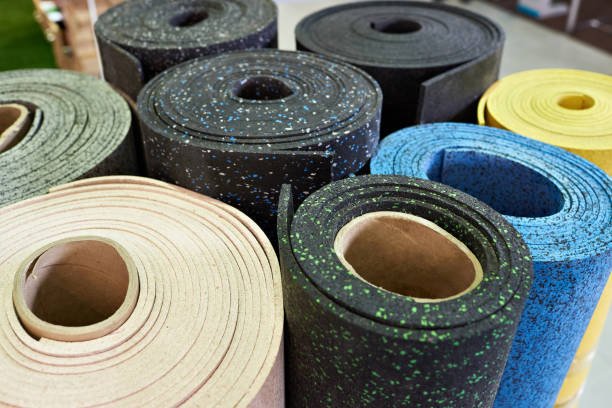Rubber flooring has become increasingly popular in various settings due to its durability, versatility, and safety features. Whether you’re outfitting a gym, a playground, a commercial space, or even your home, selecting the right rubber floor manufacturer is crucial to ensure quality, performance, and customer satisfaction. With numerous options available in the market, it’s essential to consider several factors before making your decision. Let’s explore some key considerations when choosing a rubber floor manufacturer.
- Quality of Materials: The quality of rubber used in manufacturing flooring products directly impacts their durability and performance. Ensure that the manufacturer sources high-quality rubber materials that are resilient, long-lasting, and resistant to wear and tear. Ask about the specific types of rubber used and inquire about any certifications or standards the materials adhere to.
- Product Variety and Customization: Look for a manufacturer that offers a diverse range of rubber flooring options to suit different applications and aesthetic preferences. Whether you need interlocking tiles, rolls, or specialized flooring for sports or commercial spaces, choose a manufacturer that can provide the specific products you require. Additionally, inquire about customization options such as color choices, thickness variations, and surface textures to tailor the flooring to your needs.
- Installation Services and Support: Installing rubber flooring correctly is crucial for its performance and longevity. Choose a manufacturer that offers professional installation services or provides comprehensive installation guidelines and support to ensure proper placement and adherence to safety standards. Reliable customer support and assistance throughout the installation process can save time and hassle.
- Durability and Maintenance: Assess the durability and maintenance requirements of the manufacturer’s rubber flooring products. Opt for flooring solutions that are easy to clean, resistant to stains, moisture, and microbial growth, and can withstand heavy foot traffic or equipment use without deteriorating quickly. Manufacturers who offer warranties or guarantees on their products demonstrate confidence in their durability and quality.
- Safety and Compliance: Safety is paramount, especially in environments where the risk of slips, falls, or injuries is a concern. Ensure that the manufacturer’s rubber flooring products meet relevant safety standards and regulations, such as ASTM International or EN standards for impact resistance, slip resistance, and fire safety. Request documentation or certifications to verify compliance with industry standards.
- Environmental Considerations: Sustainability and eco-friendliness are increasingly important factors in product selection. Choose a manufacturer that prioritizes environmental responsibility by using recycled materials, employing eco-friendly manufacturing processes, and minimizing waste generation. Look for certifications such as LEED (Leadership in Energy and Environmental Design) accreditation or Cradle to Cradle certification to confirm the manufacturer’s commitment to sustainability.
- Reputation and Reviews: Research the manufacturer’s reputation and track record within the industry. Seek feedback from previous customers, read online reviews, and explore testimonials to gauge customer satisfaction levels and the manufacturer’s reliability, responsiveness, and overall quality of products and services.
- Cost and Value: While price is a consideration, prioritize value over the lowest cost. Compare quotes from different manufacturers, taking into account factors such as product quality, durability, warranty coverage, and additional services offered. Investing in high-quality rubber flooring from a reputable manufacturer may entail a higher initial cost but can yield long-term benefits in terms of performance, longevity, and customer satisfaction.
The Future of Rubber Floor Production?
As the demand for rubber flooring continues to rise across various industries and applications, the future of rubber floor production is poised for innovation and sustainability. Manufacturers are increasingly focused on advancing technology, enhancing product performance, and minimizing environmental impact to meet the evolving needs of customers while embracing eco-friendly practices. Let’s explore some of the key trends and developments shaping the future of rubber floor production.

- Advanced Materials and Manufacturing Techniques: The future of rubber floor production lies in the development of advanced materials and manufacturing techniques that improve durability, performance, and aesthetics. Manufacturers are investing in research and development to create innovative rubber compounds with enhanced properties such as increased resilience, better shock absorption, and improved stain resistance. Advanced manufacturing processes, including precision molding, laser cutting, and 3D printing, allow for greater customization and efficiency in producing rubber flooring products.
- Digitalization and Smart Flooring Solutions: With the rise of smart technologies, the future of rubber floor production includes the integration of digitalization and IoT (Internet of Things) capabilities into flooring systems. Smart rubber floors equipped with sensors can monitor factors such as foot traffic, temperature, humidity, and even detect potential hazards like spills or structural damage in real-time. This data can be used to optimize maintenance schedules, enhance safety measures, and improve overall efficiency in various environments, from commercial spaces to sports facilities.
- Sustainability and Eco-Friendly Practices: Environmental sustainability is a driving force in the future of rubber floor production. Manufacturers are adopting eco-friendly practices throughout the production process, from sourcing raw materials to manufacturing and disposal. This includes using recycled rubber from tires and other sources, minimizing energy consumption, reducing waste generation, and implementing closed-loop recycling systems. Additionally, sustainable certifications and eco-labels such as Cradle to Cradle and GREENGUARD help consumers identify environmentally responsible flooring options.
- Biodegradable and Bio-Based Materials: The future of rubber floor production also involves exploring biodegradable and bio-based materials as alternatives to traditional rubber compounds. Bio-based rubber derived from renewable resources such as plant oils or biomass offers the potential to reduce reliance on fossil fuels and decrease the carbon footprint of rubber flooring production. Manufacturers are researching and developing bio-based formulations that maintain the performance and durability standards of conventional rubber flooring while offering environmental benefits.
- Customization and Personalization: Personalization is a growing trend in rubber floor production, driven by the desire for unique designs and tailored solutions. Advanced manufacturing technologies enable manufacturers to offer a wide range of customization options, including custom colors, patterns, textures, and logos embedded directly into the flooring surface. Customized rubber flooring allows customers to express their branding, enhance aesthetics, and create distinct environments that reflect their identity and purpose.
- Health and Wellness Features: The future of rubber floor production encompasses designs that promote health and wellness in indoor environments. Manufacturers are developing flooring solutions with antimicrobial properties to inhibit the growth of bacteria and mold, improving indoor air quality and hygiene. Additionally, advancements in ergonomic design and comfort technologies offer enhanced shock absorption, noise reduction, and fatigue relief, contributing to occupant well-being and productivity in spaces such as offices, healthcare facilities, and fitness centers.
- Circular Economy Initiatives: Embracing the principles of the circular economy is another aspect of the future of rubber floor production. Manufacturers are exploring ways to extend the lifespan of rubber flooring products through refurbishment, reuse, and recycling programs. By designing products for disassembly and implementing take-back schemes, manufacturers can recover and repurpose end-of-life flooring materials, closing the loop and minimizing waste while conserving resources.

Matz and Flooring is a leading manufacturer in the rubber floor industry, specializing in the production of high-quality rubber flooring products. With a commitment to excellence, they offer a wide range of flooring solutions that are durable, versatile, and aesthetically pleasing. Our rubber floor manufacturing involves a meticulous process of raw material selection, mixing, shaping, curing, finishing, quality control, and distribution to produce high-quality flooring solutions that meet the diverse needs of customers across various industries and applications. Whether you’re looking for a sleek and modern design or a more traditional look, their extensive range of options ensures there is something for everyone. Their rubber floors are made from recycled materials, reducing waste and contributing to a greener future.

